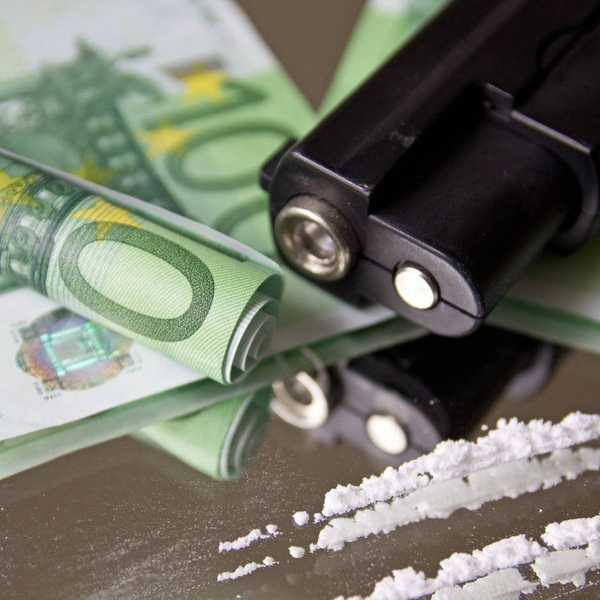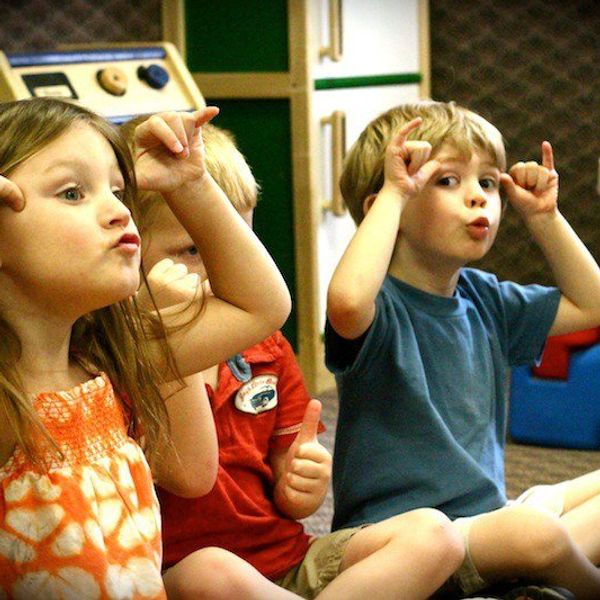In case you missed it, big news came down from the U.S. Department of Justice last week. The federal government will be ending its contracts with private prisons.
As a former Bernie supporter, this recent news is extremely exciting, and should be seen as a huge victory for American progressives. However, we still have a long way to go in terms of ending the prison-industrial complex, ending police brutality and generally reforming the criminal justice system. As Senator Sanders said himself, "Today in America, we have more people in jail than any other country on Earth....we have more people in jail than China." We claim to live in the freest nation on Earth — the land of the free — but how can this be so with such a high incarceration rate and acts of police brutality?
Ending the use of private prisons is just one step, but it's a big one. Private prisons are notorious for being more violent, less safe and less about rehabilitation. Unfortunately, this directive does not extend to state prisons, even private ones, and most prisoners are incarcerated in state prisons. Moving forward, we must be active in ensuring this directive expands to all levels to end private prisons once and for all in this country.
The prison system in the United States needs to be reformed — big time. The prison-industrial complex is one of the most dangerous systems to the health of any democracy, especially one that claims to rule the free world. Moreover this system is racist, incarcerating far more African-Americans than whites, not just in general, but at higher rates for the same crime. Beyond that, abuse of African-American prisoners occurs more prevalently than white prisoners. One of the first things we can do to ameliorate the problem of mass incarceration is ending the unsuccessful "War on Drugs." Marijuana is currently scheduled as a drug with no accepted medical use and the highest potential for abuse, grouped with heroin as a "Schedule 1 narcotic. Prescription opioids are a higher schedule, making them more accessible despite their danger to health and much higher potential for abuse. We now know that Nixon expanded the War on Drugs to specifically target minorities, so why in 2016, with 25 states and the District of Columbia having legalized medical marijuana, do we pretend it's as harmful as heroin with no acceptable medical use? The DEA continues to propagate this fallacy, and it only feeds into the prison-industrial complex. We also need to add mandatory minimum sentencing.
Mandatory minimums require judges to hand down a minimum sentence for a crime regardless of the circumstances. Everything is circumstantial, and no sentence should be handed down without understanding the reason why that crime was committed. The intense persecution of non-violent crimes in this country is one of the largest contributors to our prison-industrial system. In tandem with this, we need to stop labeling those who commit crimes as criminals for life. Rehabilitation is possible, it is essential for a healthy democracy and should be the primary purpose of our prisoners. Prison should not be just about punishment, some 10-year or so time out. Prison should be about rehabilitating those who commit crimes to be functioning members of society. Ending the stigma behind criminals will help them get their lives on track and lower the recidivism rate, this would both increase the productive members of society and lower the crime rate in general. A small step to this is allowing convicted felons to vote, because their future is as much at stake as anyone else's, and one criminal act does not make you a bad person for life, especially in cases of non-violent crime.
Finally, we must stop this system by attacking it at its core: the way police behave and are trained in the United States. U.S. police receive less training in crisis situations than most other developed nations, some departments only requiring a day of training in these situations. In fact, the bulk of police training time is spent on training the use of firearms. If this is the case, why are police still shooting to kill rather than wound? Why are they so trigger happy? It's part racism, no doubt, also partly the fault of how we train police. Police are trained to have no respect for others so long as the law is laid down. Every arrest is violent, using excessive force to subdue suspects whereas in Scandinavia police are taught to deescalate, and their incarceration and police death rates are significantly lower than ours. Police need to be taught to deescalate rather than escalate, because that's when people die. Police need to treat everyone like people regardless of what criminal act they saw (or think they saw) occur. To stop the militarization of police we need to end the programs that allow local police departments to receive military surplus weapons, uniforms, and vehicles. Not only does this militarize our police but it contributes to the military-industrial complex as well. And before anyone attacks me for not respecting police: I have the utmost respect for what they do and are an absolute necessity. They just need to change the way they are trained. Police are too violent, too quick to judge, and often don't know the laws they enforce. Yes, police put their lives on the line, but they sign up knowing something could happen to them so we absolutely should be mourning those innocent civilians who were killed by the hands of police as much as we mourn the fallen officers. One last thing, the fatality rate for police officers is lower than loggers, taxi drivers and fishermen, so we need to stop acting like it's the most dangerous in the country.





















Does Our Justice System Really Not See Color?